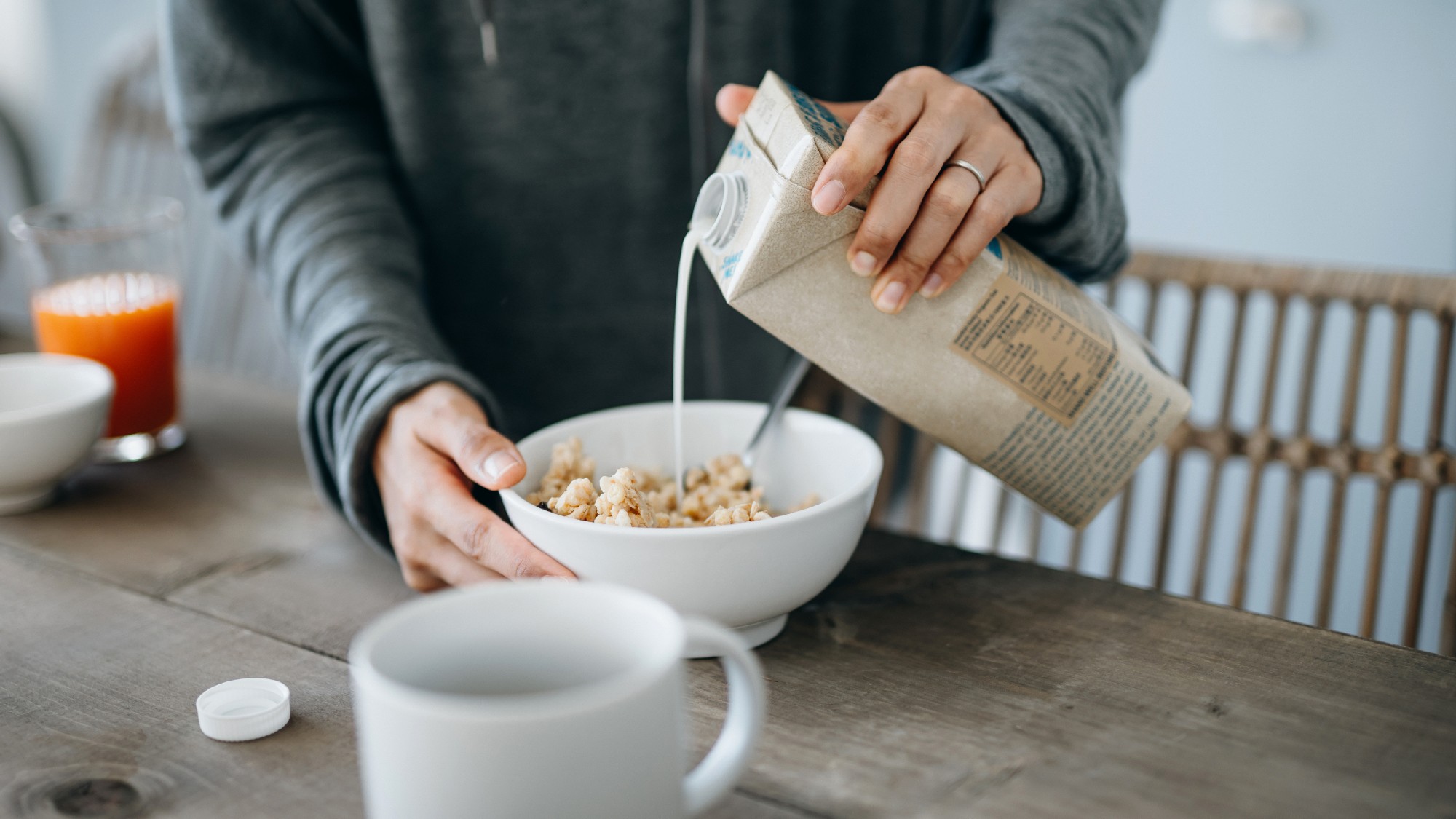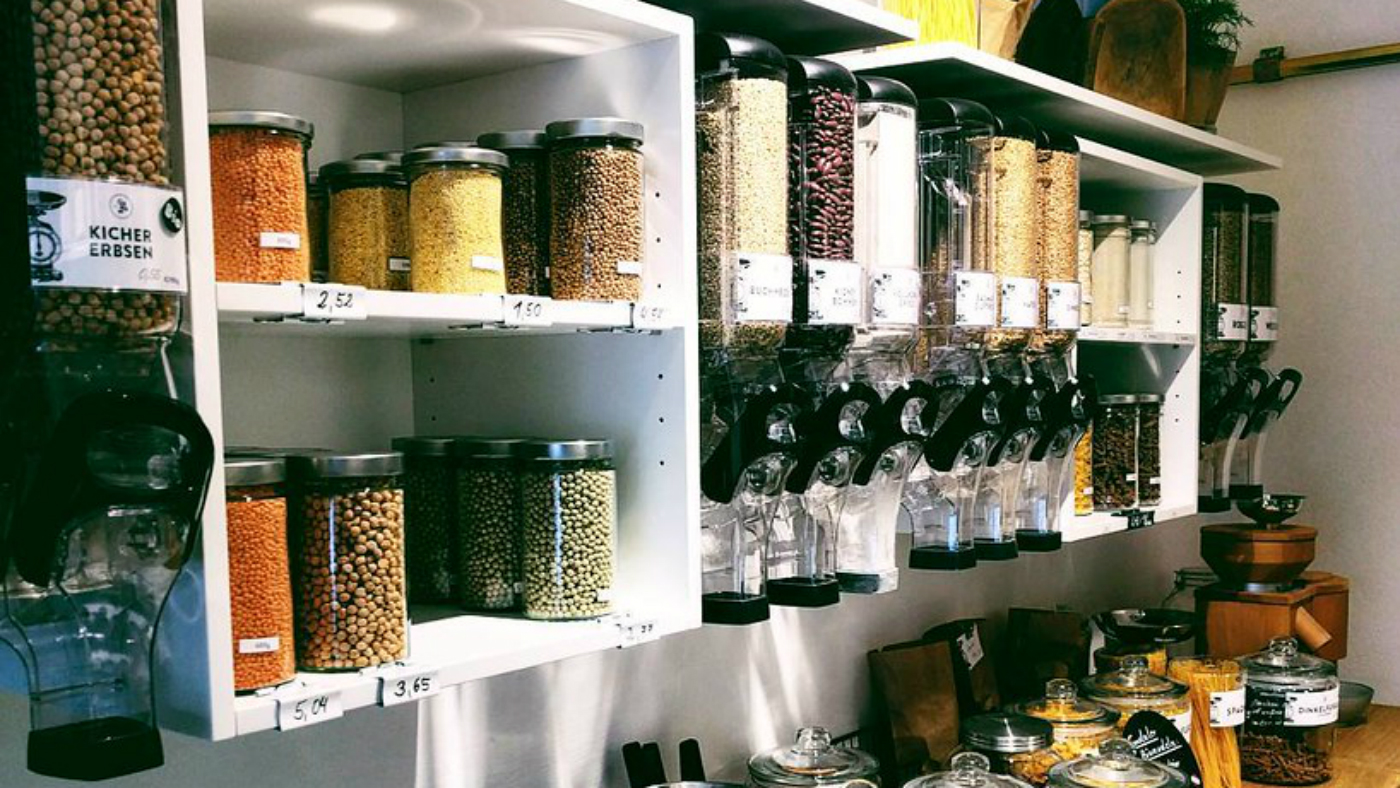Pros and cons of oat milk: what are the benefits?
Oat milk is now the most popular dairy alternative in many countries – but how healthy and 'green' is it?

A free daily email with the biggest news stories of the day – and the best features from TheWeek.com
You are now subscribed
Your newsletter sign-up was successful
Oat milk is the bestselling plant-based milk alternative in the UK, and also in European markets including Germany, Sweden and Finland, where it has become the go-to for a vegan cappuccino or creamy dairy-free porridge.
In the US, oat milk is second only to almond milk in popularity, and it is slowly gaining ground in emerging markets in Latin America and East Asia, capitalising on "urbanisation, changing dietary habits, and increasing disposable incomes", according to market-research platform Credence Research.
Here are the pros and cons of switching to oat milk.
The Week
Escape your echo chamber. Get the facts behind the news, plus analysis from multiple perspectives.

Sign up for The Week's Free Newsletters
From our morning news briefing to a weekly Good News Newsletter, get the best of The Week delivered directly to your inbox.
From our morning news briefing to a weekly Good News Newsletter, get the best of The Week delivered directly to your inbox.
Pro: more environmentally friendly
Pint for pint, cow's milk has a carbon footprint between 2.5 and three times larger than plant-based alternatives. And it's generally accepted that oat milk "has a smaller carbon footprint than most of the alternatives", said The Independent.
Estimates of environmental impact vary but, according to the BBC's "Sliced Bread" podcast, producing a litre of oat milk requires 12 times less space than a litre of cow's milk globally, and three times less in Europe. The figures are also persuasive for water consumption: a litre of oat milk requires five times less water than a litre of cow's milk, in Europe.
Con: requires intensive farming
The crop yields needed to meet soaring demand for plant-based milk mean "highly industrialised farming", said The Independent. When vast swathes of land are converted to production of a single crop, it creates a monoculture, "stripping out biodiversity and having a detrimental effect on pollinators".
However, it's all relative. For instance, while rice and almonds require less space than oats, they both require substantially more water. And all dairy alternatives require significantly less land and water than raising dairy cattle.
A free daily email with the biggest news stories of the day – and the best features from TheWeek.com
Pro: creamy foam and flavour
Oat milk's creamy taste and consistency is usually described as the most similar to dairy milk, which is good news if you love the taste of cow's milk and are switching purely for ethical or health reasons.
If you're no stranger to an oat-milk latte, you'll also know that oat milk froths up into a foam comparable to the kind you'd get from cow's milk – which can't be said for all dairy alternatives.
Con: not suitable for all diets
Unsweetened oat milk "can add up to 30g carbs (similar to two slices of bread) to your favourite coffee order", said dietitian Susie Burrell in The Sydney Morning Herald. The starch in those carbs converts to sugar when you drink it, triggering a temporary spike in blood-glucose levels. But "if you're not diabetic and otherwise eat well", take the panic-inducing headlines with a pinch of salt, wrote Vox's environmental reporter, Benji Jones. "It's normal for food to raise your blood sugar."
Oat milk also contains fibre – no bad thing in itself, as it "promotes bowel regularity", said the i news site, but, if you're sensitive to fibre or simply drink too much, it "can lead to bloating and gassiness".
Pro: allergy- and intolerance-friendly
The increased availability of plant-based milks in cafés and supermarkets in recent years has been a boon for those with lactose intolerance. And oat milk is especially friendly to those with other food sensitivities or allergies, too. Soy milk and almond milk are among the bestselling milk alternatives, but their principal ingredients are also common allergens. Oat allergies are rare, by comparison. But consumers should always check the label first for unexpected ingredients or cross-contamination risks.
Con: fewer nutrients
Cow's milk is packed with nutrients, including calcium, iron, magnesium, phosphorus, iodine and vitamins B2 and B12, so, if you're swapping out dairy for oat milk, you may need to adjust your diet to ensure you're getting enough of those vitamins and minerals elsewhere – or look for fortified oat milks.
If protein content is important to you, opt for soy milk, which is "closest nutritionally to dairy milk" and contains a similar amount of protein to cow's milk – around 8g per 250ml glass, said Burrell for The Sydney Morning Herald.
What are the benefits of oak milk?
To summarise, oat milk offers a dairy-like creamy consistency and slight natural sweetness, which makes it an appealing option for "regular" milk drinkers looking to experiment with plant-based alternatives. While industrialised farming of all stripes comes with an environmental impact, cultivating oats requires much less space and water than grazing dairy cattle, making it a more environmentally conscious choice than milk. It also represents a good milk alternative for those with lactose intolerance, especially if they also have dietary restrictions around common allergens like nuts or soy, which form the basis of other popular milk alternatives.
Is oat milk suitable for weight-loss diets?
Bryony Gordon in The Telegraph credited cutting out oat milk, along with other highly processed foods, with helping her lose 20lb. And it's true that, compared to other plant milks on the market, oat milk is higher in calories, with up to 120 calories in a cup. However, in moderate quantities, oat milk is unlikely to disrupt a weight-loss regimen – simply "keep an eye on your serving sizes", said Women's Health.
Does oat milk pose any health risks?
Although oat allergies are rare, consumers with allergies or intolerances should always check the label first for any unexpected ingredients or cross-contamination risks. This is especially the case for people with a gluten intolerance, registered dietitian nutritionist Tamar Samuels told the Huffington Post, warning that, although oats themselves are gluten-free, oat milk is "typically processed in facilities that manufacture gluten-containing products".
Rebecca Messina is the deputy editor of The Week's UK digital team. She first joined The Week in 2015 as an editorial assistant, later becoming a staff writer and then deputy news editor, and was also a founding panellist on "The Week Unwrapped" podcast. In 2019, she became digital editor on lifestyle magazines in Bristol, in which role she oversaw the launch of interiors website YourHomeStyle.uk, before returning to The Week in 2024.
-
 Bad Bunny’s Super Bowl: A win for unity
Bad Bunny’s Super Bowl: A win for unityFeature The global superstar's halftime show was a celebration for everyone to enjoy
-
 Book reviews: ‘Bonfire of the Murdochs’ and ‘The Typewriter and the Guillotine’
Book reviews: ‘Bonfire of the Murdochs’ and ‘The Typewriter and the Guillotine’Feature New insights into the Murdoch family’s turmoil and a renowned journalist’s time in pre-World War II Paris
-
 Witkoff and Kushner tackle Ukraine, Iran in Geneva
Witkoff and Kushner tackle Ukraine, Iran in GenevaSpeed Read Steve Witkoff and Jared Kushner held negotiations aimed at securing a nuclear deal with Iran and an end to Russia’s war in Ukraine
-
 How loss of India's vultures might have led to half a million deaths
How loss of India's vultures might have led to half a million deathsUnder the Radar Near extinction of the invaluable carrion eaters in 1990s left cattle carcasses piled up and disease spreading widely
-
 The climate crisis in 2023
The climate crisis in 2023feature New legislation, activism and business paths could change the picture this year
-
 Ten best zero waste shops in the UK
Ten best zero waste shops in the UKIn Depth If you want to cut down your plastic use, these ten stores might be the best place to start
-
 Fish and chip shops serving endangered shark
Fish and chip shops serving endangered sharkSpeed Read It is ‘almost impossible’ for consumers to know what they are buying, scientists say
-
 What foods and beauty products contain palm oil?
What foods and beauty products contain palm oil?In Depth Clearcast defends ban on Iceland advert showing the negative effects of palm oil use